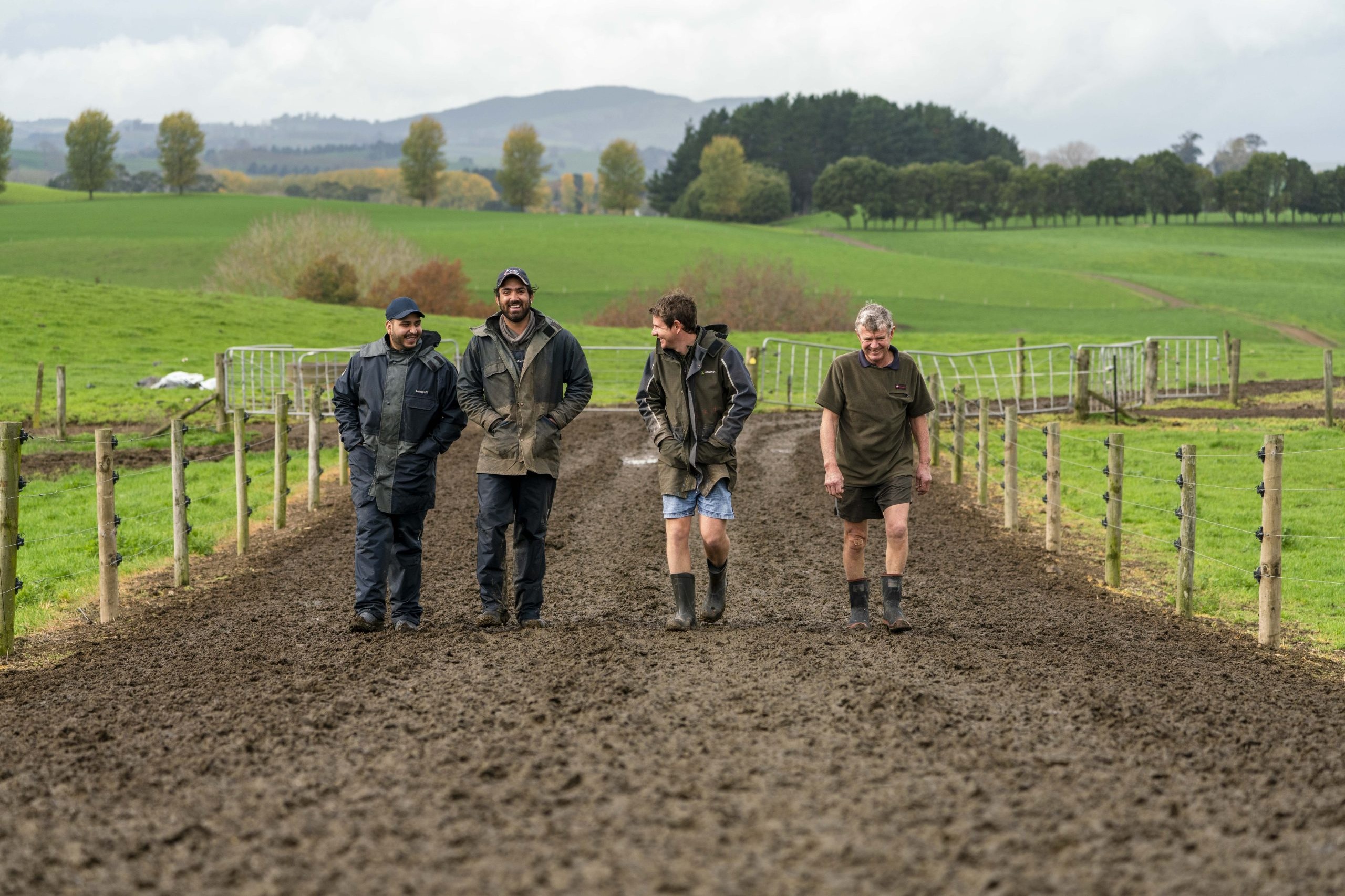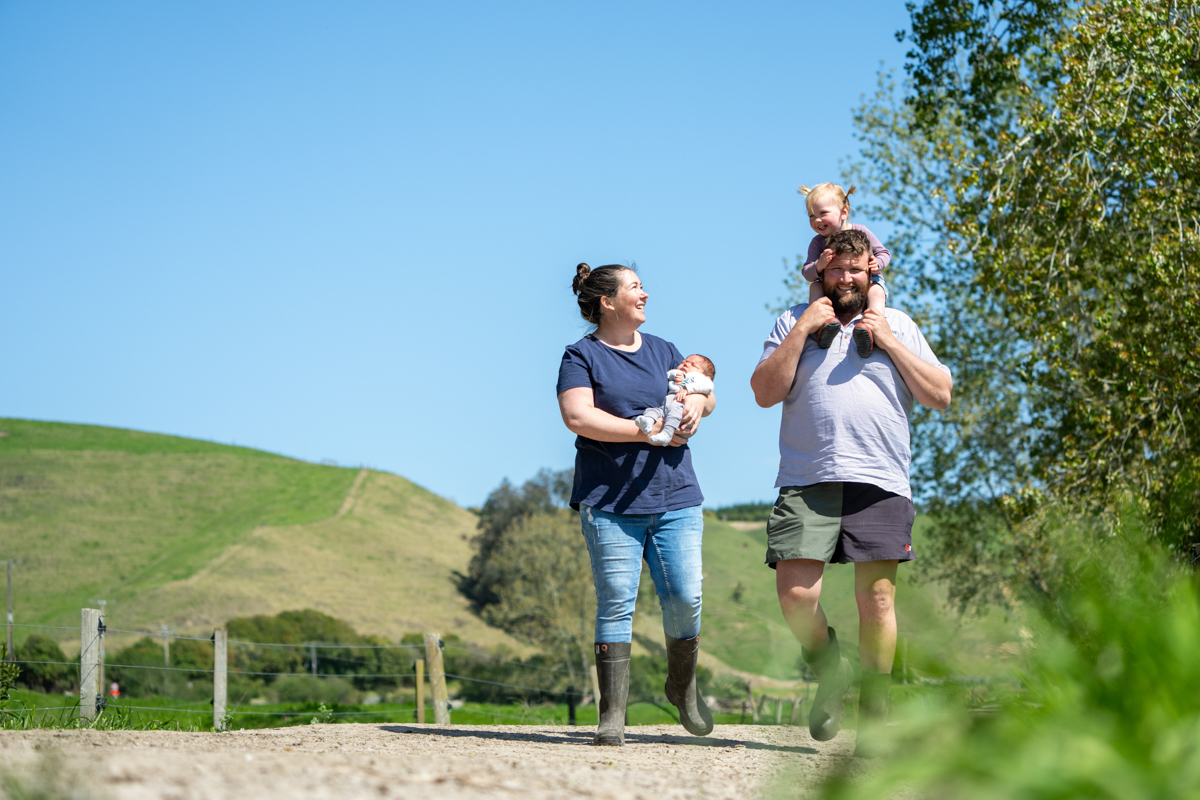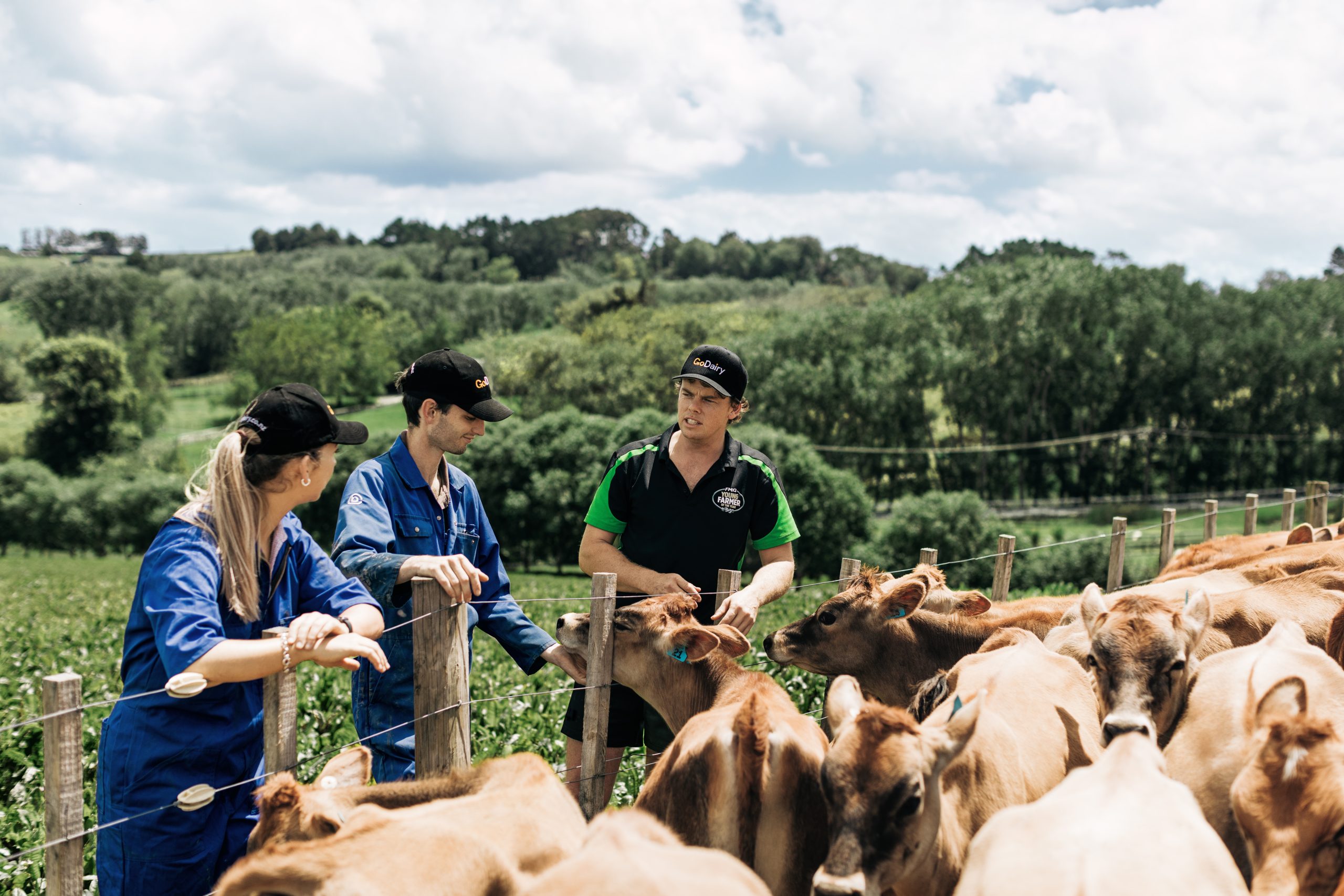Being farm manager on a research farm where milk production is not the priority can be a juggling act. Sheryl Brown reports.
Ben Fisher is in his second season as farm manager of Scott Farm, the DairyNZ research farm at Newstead.
Being a farm manager on the research farm involves juggling multiple herds and research projects while managing the everyday demands of a dairy farm.
“The research side of this farm gives the role a bit of a twist, it’s a different challenge. We are at the forefront of what’s happening in farm system research,” Ben says.
The job requires a different mindset than a conventional farm manager role because the research projects take centre stage and milk production is not the priority.
“The research comes first, and milk in the vat comes second,” Ben says.
The 29-year old grew up in the Wairarapa. His father had several sharemilking positions in the area and growing up the consensus of most family and friends was that Ben would end up being a dairy farmer, so in typical teenage fashion he rebelled.
“Growing up everyone said I was going to be a farmer, so I said no I wouldn’t.”
He went off to Massey University in Palmerston North to study ecology but after one year swayed back to a more traditional Bachelor of Agricultural Science degree.
“I realised there were more opportunities and that I did really want to go farming.”
After graduation he went to Australia for a few months working and then landed a job as farm assistant on Scott Farm.
During his first season he completed a post graduate qualification in business studies then worked as a research technician for DairyNZ – still involved with the farm, for four years before taking up the farm manager role last season.
As farm manger his role is split between organising the logistics of running a research farm, including staffing, budgets and planning, with carrying out the onfarm work.
“My role is 50% logistics of who is doing what and when. These projects are changing all the time, I get emails everyday from the technicians in charge of projects.
“It can be challenging at times, doing some projects that you don’t typically manage onfarm.”
Ben employs seven fulltime staff to carry out the daily duties which includes looking after multiple herds.
The 115-hectare farm has 15 herds, including 10 of just 14 cows. Each herd is designated to a different research project, which Ben must manage according to their specific requirements.
There is always a revolving herd of about 150 cows called the ‘spare herd’ as a control herd.
Scott Farm has 200 paddocks whereas on a conventional farm of similar size there would be only about 40.
So feeding out and putting up break fences for the 15 herds takes time.
“There are a lot of reels here, it’s time consuming.”
The herds are also kept separate during milking so there are always two staff members in charge of bringing the herds to and from the farm dairy. The staff also herd test themselves every week.
“We do a lot ourselves because we can have more control over what we need for the research projects.”
During calving they also have to collect calves from all 15 herds, they can’t run one big springer mob, which adds time.
The colostrum cows usually can’t be kept in one mob either as each herd has to be kept within its research parameters. For example, some projects are specific to eating a certain pasture species or crop.
Ben is in constant communication with the scientists and technicians who oversee the research projects to configure daily and weekly plans for the herds.
The farm management decisions are not dictated to Ben, and he has a lot of input to how the projects are run and managed daily.
Ben constantly juggles fluctuating stocking rates depending on feeding requirements of the projects, or area being taken out for planting new pasture species or crops for future projects.
For example, if any of the scientists decide they want cows pulled off grazing paddocks to protect the pasture, there is one covered stand-off pad onfarm that can be fenced off for six different mobs. In winter, if there is bad weather it can become a real challenge to stand off all the herd and Ben sometimes has to make sacrifice paddocks.
That can often put pressure on the area designated to the ‘spare’ herd and can push the stocking rate up making it a bigger challenge to feed them.
The protocol is to stick to a DairyNZ System 1 or 2, so buying in feed is usually not an option so Ben has to carefully manage pasture cover and utilise the grass silage made onfarm.
They usually make somewhere around 100 tonnes drymatter of grass silage onfarm – although it’s not the contractor’s favourite farm to visit because of the small paddocks, he says.
As part of his role Ben also spends quite a bit of time hosting visitor groups on the farm answering questions about the projects, which has got him more comfortable with public speaking. Being a research farm with multiple visitors, health and safety and biosecurity become even more paramount.
“We do get a lot of visitors, so we have to be very on to it for biosecurity. It’s a constant thing and we have to be working on it all the time.”
The increased focus on health and safety also impacts the farm system. For example, they don’t have bulls on the property because of health and safety and as they have so many herds they would need a lot of bulls and it’s a lot more mouths to feed, Ben says.
With small herds and no bulls getting cows in calf is more difficult, Ben says.
Their six-week in-calf rate this season was 70%, short of their target of 78%.
Heat detection has been a problem in the past because the cows are in such small mobs, Ben says. The cows do wear DeLaval collars, but currently they don’t have the activity technology in the farm dairy so he is hoping to trial Flashmate this year to aid with heat detection.
In the future Ben would be keen to go into an equity partnership with his family and be the farm manager.
“I’ve always wanted to own my own herd of cows and one day my own farm. But I really enjoy the people aspect of this job. I don’t think I would enjoy going sharemilking a small herd on my own.
“I definitely still see myself farming, it would be great to go into partnership with dad and my brother.”
He is building his equity through property investment. He used to have a lease property with his friend where they bought and sold carry-over cows. However, since taking on the farm manager role he has less spare time and the pair have instead invested in a house which they are renovating.
A rural catch
Ben put his farming skills and personality to the test and was runner up in the Fieldays Rural Catch competition this year.
It was the first year the previous Fieldays Bachelor competition was opened up to women, with Taihape shepherd Mairi Whittle taking out the inaugural title.
It was a great experience to step outside his comfort zone and enter a competition which was in the public eye, Ben says.
Following the competition he’s been on a few dates, but is still on the singles market.





